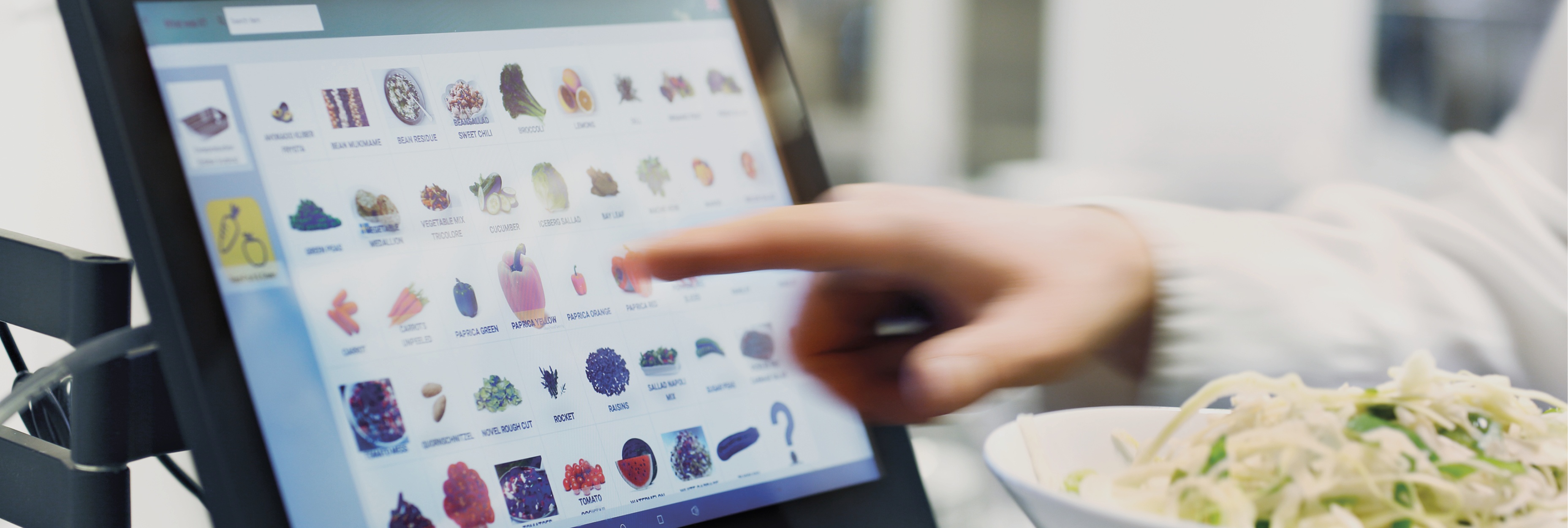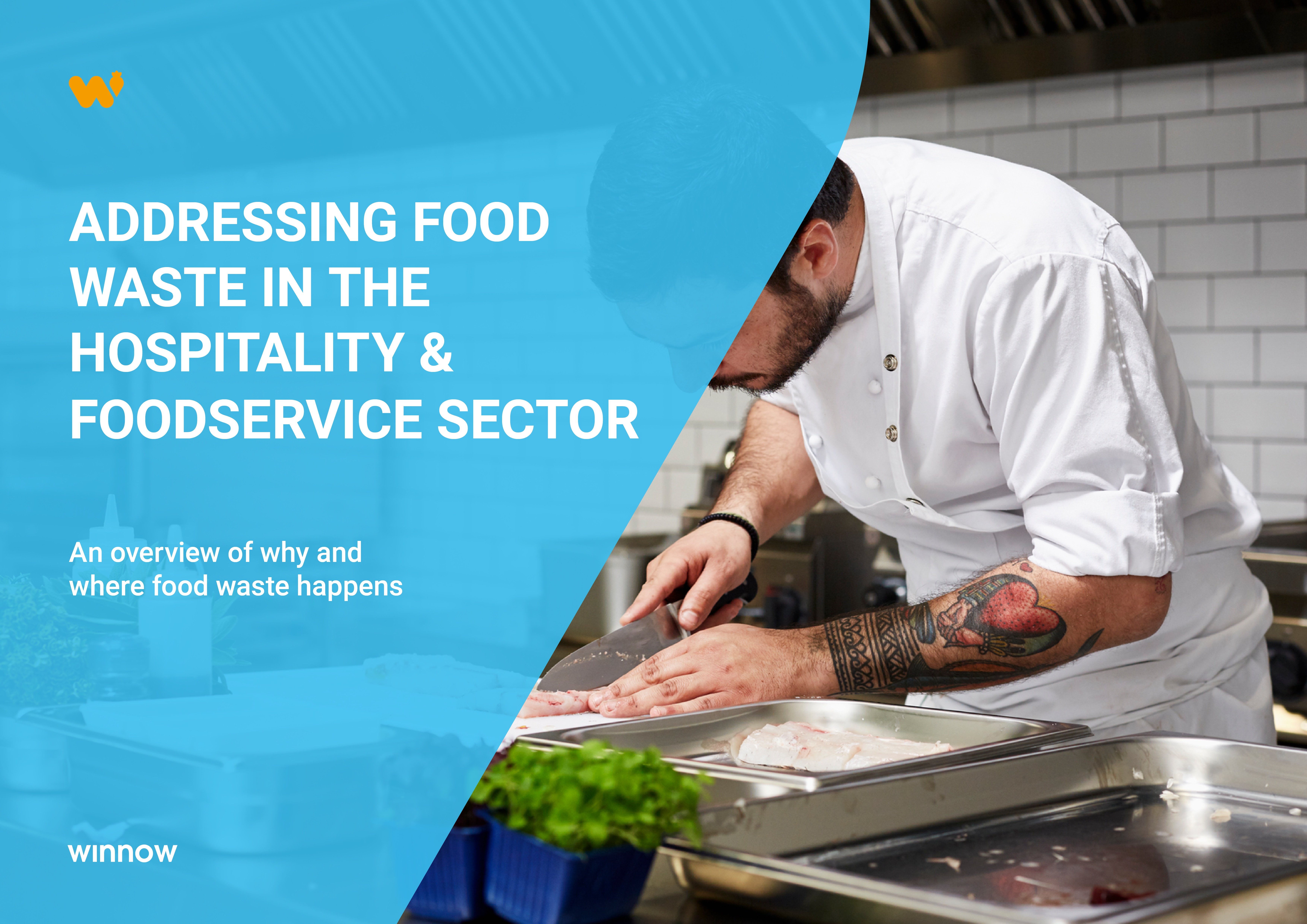The hotel industry has a number of different challenges.
These principally include growing levels of competition, pressure to deliver innovation, demanding customers and rapidly increasing costs.
Food and Beverage (F&B) plays an important role in attracting customers to the hotel. However, if not closely tracked, food waste can end up as a major cost for the business.
With the development of new technology, food waste solutions are key to reducing food costs and offer hotels a huge opportunity to make more money.
Reducing food waste is a proven way to cut costs, improve profits and reduce the carbon impact of the hotel. All of these factors contribute to an increased brand value.
Many forward thinking hotel brands such as AccorHotels, Marriott and Hilton are already viewing food waste as a business opportunity and reap the benefits of food waste reduction.
 We had the pleasure to interview Fabrice Blondeau, the managing director of F+B Consulting International, a boutique consultancy for restaurant and bar strategy.
We had the pleasure to interview Fabrice Blondeau, the managing director of F+B Consulting International, a boutique consultancy for restaurant and bar strategy.
Fabrice has vast F&B experience with leading hotel chains, including AccorHotels where he was the Global Vice President F&B. He led on F&B strategy, developing new brands and helping AccorHotels CSR (Corporate Social Responsibility) by initiating its food waste program.
Fabrice spoke to us to share his insight and experience on what is needed to implement a successful food waste reduction program.
Do you think reducing food waste should be a commercial priority for hotel chains? Why?
The hotel industry must prioritize reducing food waste. By reducing it, you will not only run a more sustainable operation but also help contribute to improving the hotel's bottom line.
Frequently, hospitality groups are managing or franchising hotels. It is unlikely to think that today an owner is selecting a hotel brand because of the CSR program, so showing that reducing food waste also saves money is crucial.
Based on your previous experiences working with hotel chains, how well did the owners/corporate office approach the project to reduce food waste? How effective do you feel the initiatives have been?
I have seen many basic initiatives in hotel chains such as collecting soap, the bed sheets or towels not replaced to save water. Or more recently, swapping plastic straws with more sustainable straws.
They are good initiatives but food waste has a larger impact not only on overall sustainability but also financially. The impact of food waste remains unknown for many operators and owners. Most of them think about redistributing or recycling when you mention food waste.
Preventing food waste in hotels is the most effective solution to save the planet and make financial savings.
How did you ensure the food waste initiatives were put in place across the board?
We started to measure food waste manually for few hotels with different restaurant profiles across different regions. People admitted it was difficult to measure with precision over the long term.
The introduction of digital measurement such as Winnow has been well received overall. We saw a few hotels mentioning that a digital tool was not necessary for them.
On the other hand, we had many hotels who realised the importance of tackling food waste and the potential savings. I believe these hotels are the best ambassadors to promote preventing food waste with processes and using digital solutions.
Why did you choose to work with Winnow over any other solutions?
We tried to evaluate different digital solutions for their ease-of-use, their cost and their ability to roll-out a system across different countries.
We saw many solutions but some required a lot of administrative work to measure food waste. We did not want to add additional tasks for the kitchen staff. We wanted to ensure a smooth process to collect data and get teams trained. Winnow ticked all these boxes.
What do you think the particular benefits of Winnow are over Lean Path?
Both system have been efficient during the pilot period using the same measurement base and both system were easy to use.
Positive criteria for Winnow are better reporting, very dedicated training and follow up with hotel teams, having different solutions for smaller and larger hotels and lastly, the price point.
What feedback did you have from your chefs?
For early adopters, it was really positive to use a technology that is not time consuming and provided them detailed reporting.
Besides the digital solution, the buy-in from the chefs during the training process is vital to ensure optimal food waste reduction.
The real time feedback of the cost of food waste helps staff engagement greatly. Chefs who were not really engaged with the program did not value it so highly but recognised a possible impact.
Did reducing food waste help improve your operations’ efficiency?
I wrote a thesis on food waste and after my research I realised that food waste was tackled essentially based on recycling or donations via initiatives led by the United Nations or food banks.
Very little research led to food waste reduction that allows purchasing less goods and at the same time reducing the production. I saw the possibility of financial savings whether it is in buffet restaurants, banquets or different stages of kitchen preparation.
With food waste prevention we saw food waste reduced on average by 30% and more than 50% for buffets. This represented a saving of US $60,000 per year in one 140 seat buffet restaurant.
What would you say to colleagues who are in the process of selecting digital tools to reduce food waste?
Digital tools are THE solution to help commercial kitchens reduce food waste. There is a considerably financial incentive too - a recent report states that for every $1 invested in food waste reduction, restaurants can save $7.
While it can be hard to get the chef’s buy-in first, I can assure you that the process of using a digital tool such as Winnow is seamless. It has multilingual options and the pictures on the screen are also very helpful.
Using a digital solution will help you to see immediate results on where to reduce food waste and this will undoubtedly improve your food cost.









Comment on my blog